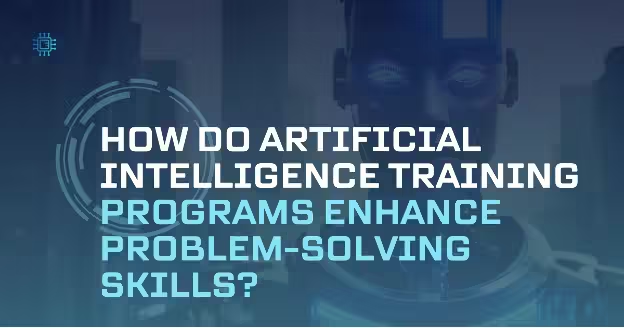Latest Developments in Technology: Innovations Shaping Our Future

In an age where technology evolves at an unprecedented pace, staying informed about the latest developments is crucial. From artificial intelligence (AI) to quantum computing, the innovations emerging today are set to transform various aspects of our lives. This article explores some of the most significant technological advancements and their potential impact on society.
Artificial Intelligence and Machine Learning
Artificial intelligence continues to be at the forefront of technological advancements. Recent developments in AI and machine learning have led to more sophisticated algorithms that can analyze vast amounts of data, recognize patterns, and make predictions with remarkable accuracy.
Generative AI: Tools like OpenAI’s ChatGPT and DALL-E have demonstrated the ability to generate human-like text and create stunning visuals based on simple prompts. These technologies are being utilized in various industries, from content creation to design, enhancing productivity and creativity.
AI in Healthcare: AI is revolutionizing healthcare by improving diagnostics and personalizing treatment plans. Machine learning algorithms can analyze medical images, predict patient outcomes, and even assist in drug discovery, leading to more effective healthcare solutions.
Quantum Computing
Quantum computing is another groundbreaking development that promises to solve complex problems beyond the capabilities of classical computers. By leveraging the principles of quantum mechanics, these computers can perform calculations at astonishing speeds.
Applications in Various Fields: Quantum computing holds the potential to revolutionize fields such as cryptography, materials science, and optimization problems. For instance, companies like IBM and Google are exploring quantum algorithms that could enhance drug discovery and climate modeling.
Challenges Ahead: Despite its potential, quantum computing faces significant challenges, including error rates and the need for stable qubits. Researchers are actively working to overcome these hurdles, paving the way for practical quantum applications in the near future.
5G Technology
The rollout of 5G technology is set to transform connectivity and communication. With faster speeds and lower latency, 5G enables new applications that were previously impractical.
Enhanced Connectivity: 5G networks can support a vast number of devices simultaneously, making it ideal for the Internet of Things (IoT). This connectivity allows for smarter cities, improved transportation systems, and advanced industrial automation.
Impact on Industries: Industries such as healthcare, entertainment, and manufacturing are already beginning to leverage 5G technology. For example, telemedicine can benefit from high-quality video consultations, while augmented reality (AR) applications can deliver immersive experiences.
Renewable Energy Technologies
As the world grapples with climate change, advancements in renewable energy technologies are becoming increasingly vital. Innovations in solar, wind, and energy storage are paving the way for a more sustainable future.
Solar Energy: The efficiency of solar panels has improved significantly, with new materials and designs allowing for greater energy capture. Bifacial solar panels, which capture sunlight on both sides, are gaining popularity.
Energy Storage Solutions: Breakthroughs in battery technology, such as solid-state batteries, are enhancing energy storage capabilities. These advancements are crucial for integrating renewable energy sources into the grid and ensuring a stable power supply.
Biotechnology and Genetic Engineering
Biotechnology is advancing rapidly, with significant implications for healthcare, agriculture, and environmental sustainability. Developments in genetic engineering, particularly with CRISPR technology, are enabling precise modifications to DNA.
Gene Editing: CRISPR-Cas9 technology allows for targeted changes to genetic material, offering potential cures for genetic disorders and enhancing crop resilience. This technology is being explored for applications in medicine, agriculture, and even conservation efforts.
Synthetic Biology: Researchers are also delving into synthetic biology, which involves designing and constructing new biological parts and systems. This field holds promise for creating biofuels, biodegradable materials, and even new pharmaceuticals.
Cybersecurity Innovations
As technology advances, so do the threats to cybersecurity. Recent developments in cybersecurity aim to protect sensitive data and systems from increasingly sophisticated attacks.
AI-Powered Security: AI and machine learning are being used to detect anomalies and predict potential security breaches. These technologies can analyze patterns in network traffic to identify threats before they cause damage.
Zero Trust Architecture: The zero trust security model is gaining traction, emphasizing the need for strict verification for every user and device attempting to access resources. This approach minimizes the risk of data breaches and enhances overall security.
Augmented Reality (AR) and Virtual Reality (VR)
AR and VR technologies are transforming how we interact with digital content and the world around us. These immersive technologies have applications in gaming, education, training, and more.
Education and Training: AR and VR are being utilized in educational settings to create engaging learning experiences. Medical students can practice surgeries in a virtual environment, while history lessons can come to life through immersive simulations.
Entertainment and Gaming: The gaming industry is experiencing a renaissance with the integration of AR and VR. Games like “Pokémon GO” have popularized AR, while VR headsets provide players with fully immersive experiences.
Read More About Skylea Nove: A Journey into the Realm of Fantasy
Conclusion
The latest developments in technology are reshaping our world in profound ways. From AI and quantum computing to renewable energy and biotechnology, these innovations hold the potential to address some of society’s most pressing challenges. As we embrace these advancements, it is essential to consider their ethical implications and ensure that technology serves to benefit humanity as a whole. Staying informed about these developments will empower individuals and organizations to navigate the ever-evolving technological landscape effectively.
![]()






